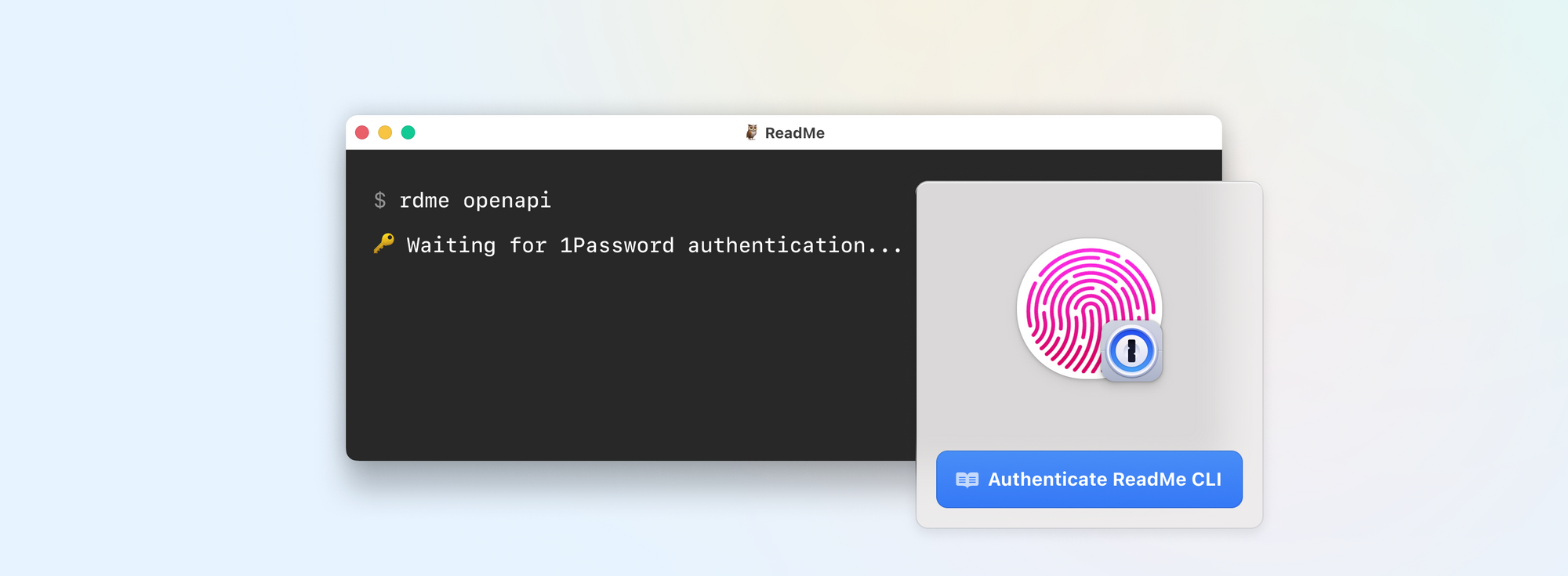ReadMe already makes it easy to create great developer hubs for public and partner APIs. But we know that companies often have hundreds (if not thousands!) of internal APIs to track, and that tracking and documenting that many APIs can be something of a logistical nightmare 😱
That’s why we’ve created ReadMe Micro. With it, our goal was to create an elegant solution for engineering teams looking for a better way to organize and maintain their internal APIs and microservices. Think of Micro as a developer hub for your engineering team: one centralized place to discover, organize, and share all your company’s internal APIs. To get started, select all the repositories in your GitHub organization or Bitbucket workspace with the OpenAPI files you want documented. You’ll have a new Micro developer hub in no time!
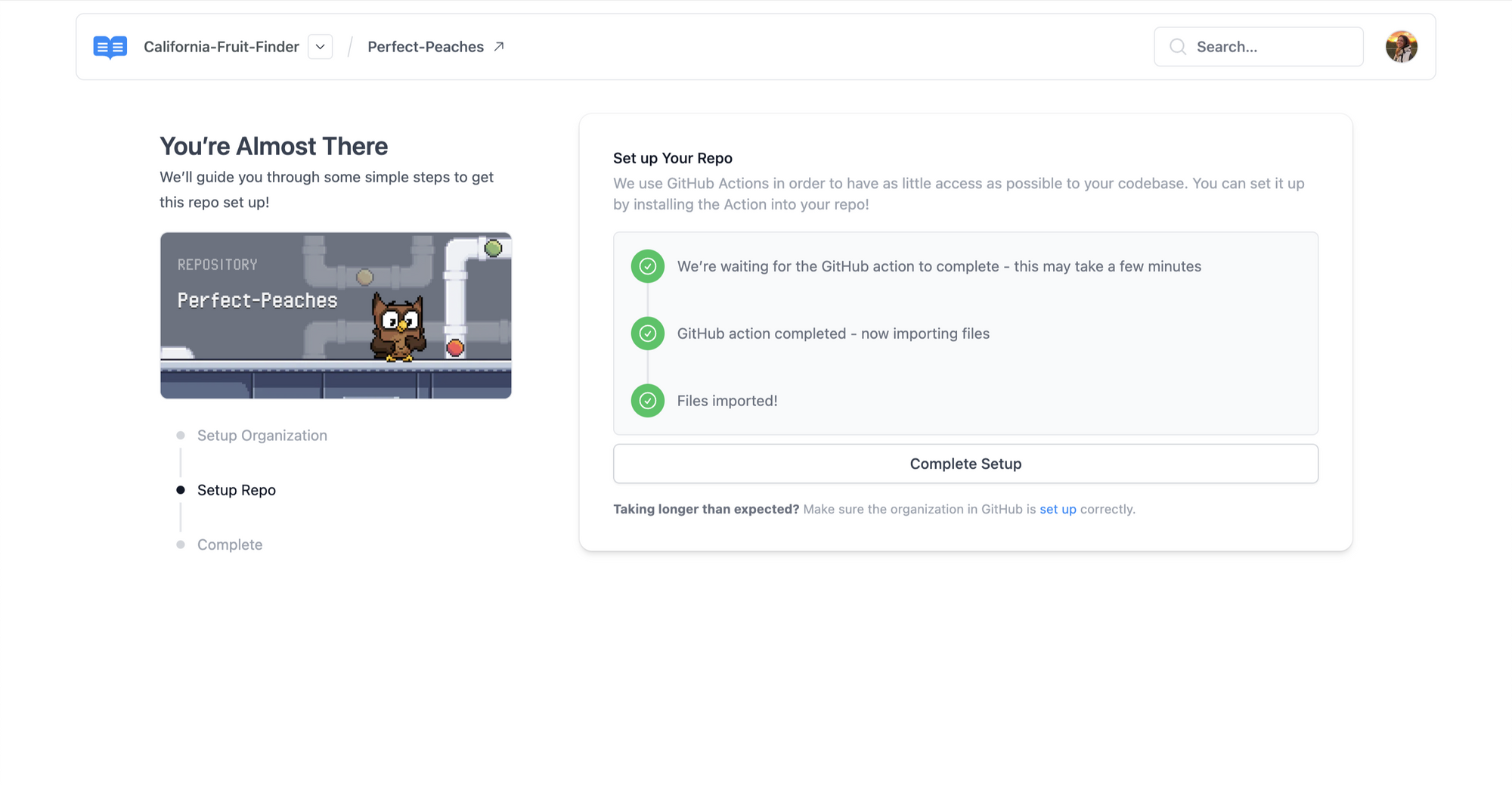
Masterful docs with minimal work 🎨
Documentation is crucial to keeping your API users happy, but creating and maintaining excellent docs is a job in and of itself. At the end of the day, internal APIs (and their users) often don’t get the same level of attention as external APIs. Without some sort of hub or homebase for those internal APIs, it’s hard for engineers to find them and learn about how they work and what the best use-cases are. This is frustrating for the engineer in question, and often leads to duplicated or delayed work.
As a team building a product by engineers, for engineers, we wanted to make those problems disappear, and Micro is our solution.
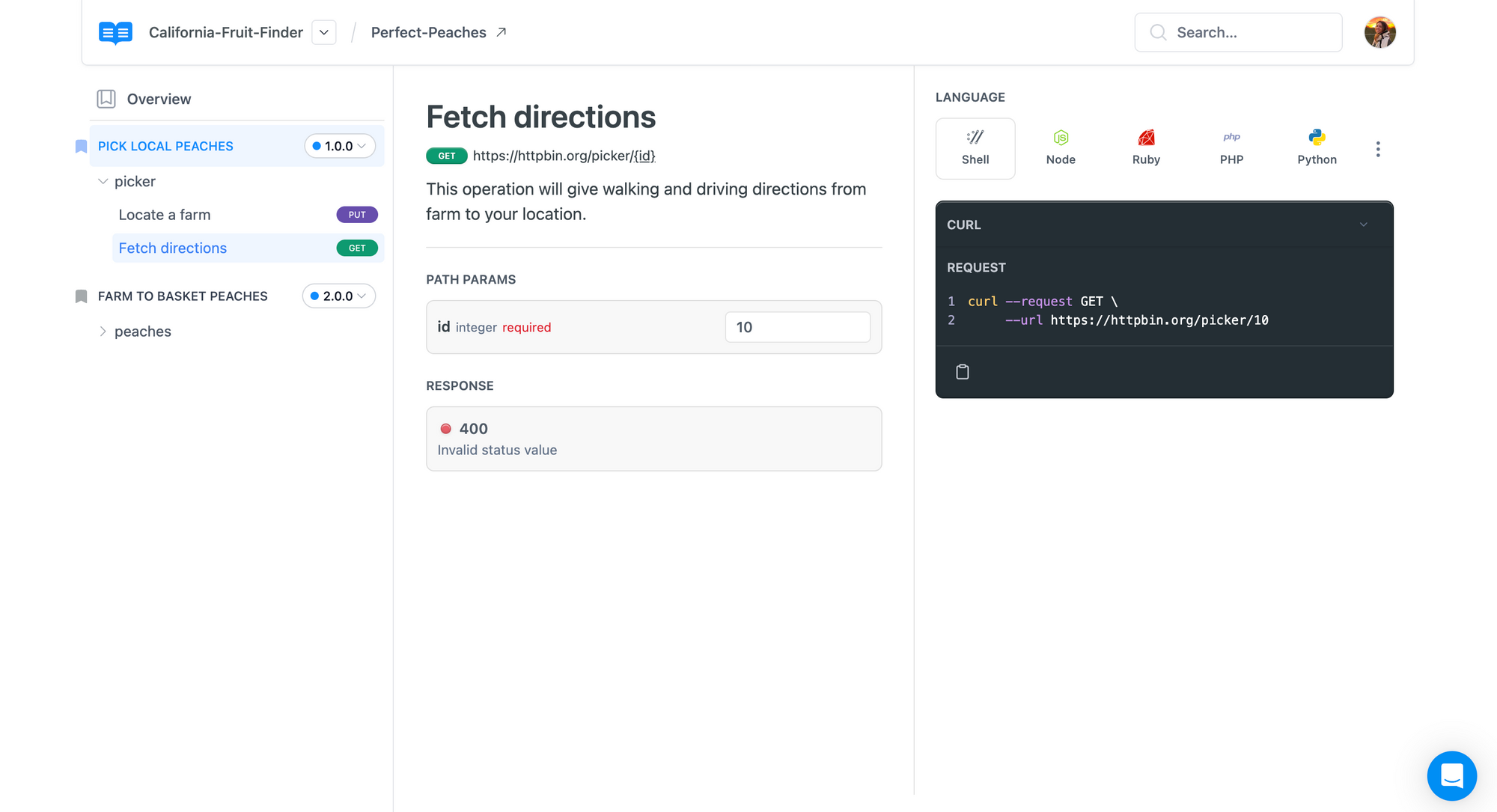
Once a GitHub or Bitbucket repository with an OpenAPI file is connected, Micro auto-generates a polished and professional API Reference for it, where you can copy and paste code samples and add more information. Preview versions of your docs are generated for every PR, and the continuous deployment process includes built-in linting and validation, so issues are caught before they hit your actual docs.
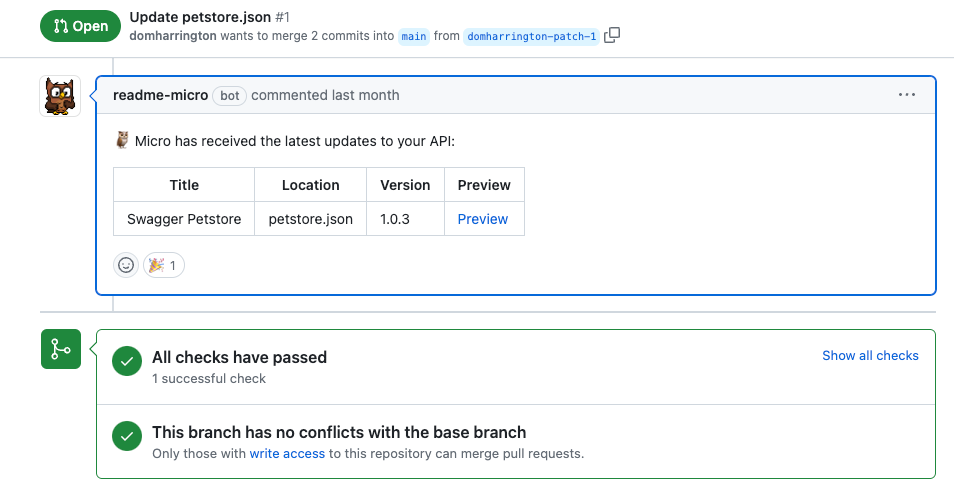
Docs writers can then add a Markdown file to provide more instructions or helpful tips for each connected repository. This significantly cuts down the amount of time a team has to spend creating documentation, while still creating professional, easy-to-use docs. No more lists of OpenAPI files living on a static page!
Maintenance made easy 🛠️
After that initial setup, changes made to the synced OpenAPI files in GitHub or Bitbucket are automatically synced to Micro. Then, the changes are noted in a changelog that’s also automatically generated for each repository. Users can see recent updates and changes at a glance, and they can also switch between versions (if you choose to create them) with a simple dropdown menu.
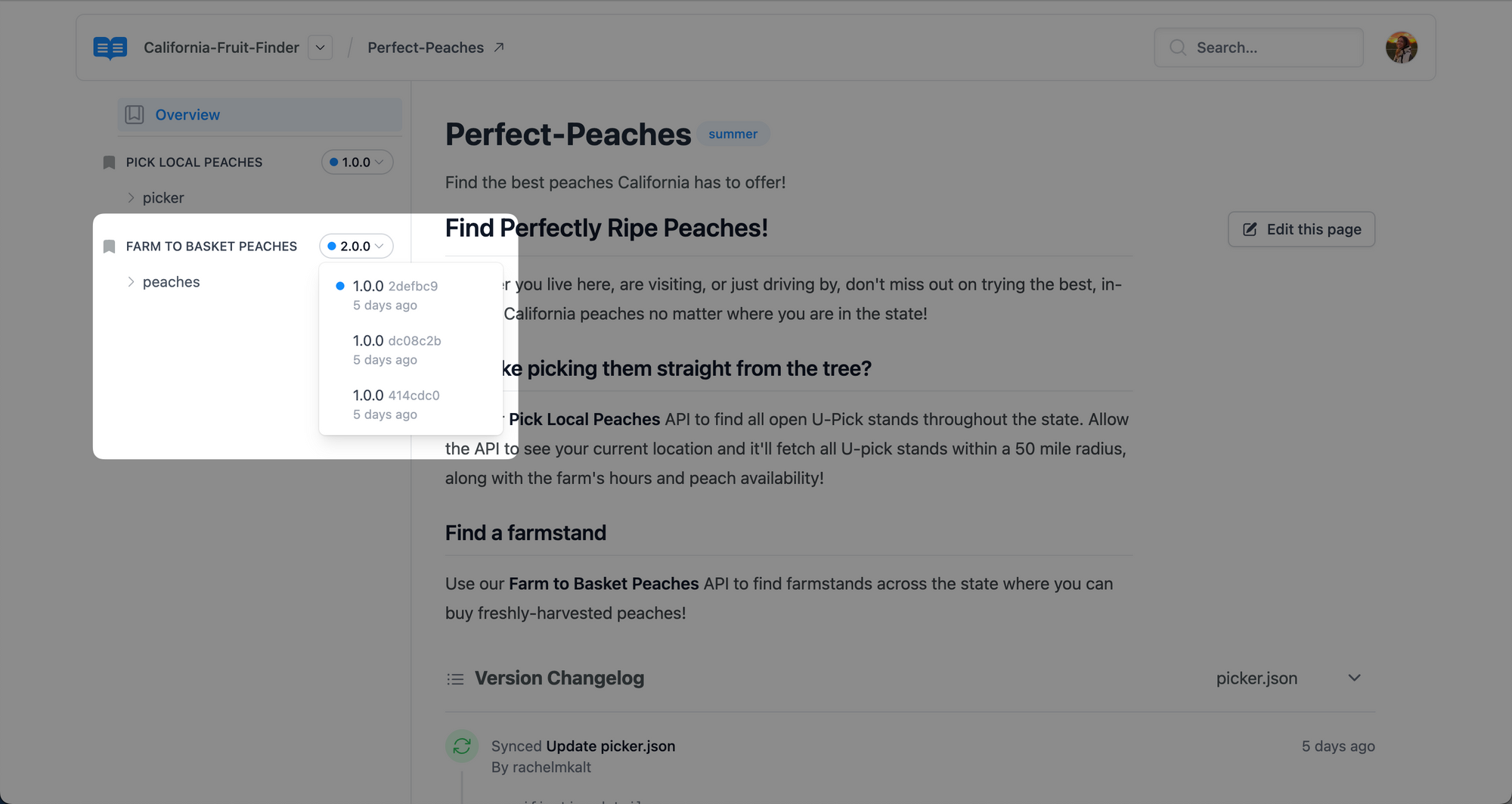
Easy to use, easy to find 🔍
Of course, having automatically generated docs doesn’t do an engineering team any good if it’s impossible to find the documentation you need at any given moment. Micro’s search functionality lets you search and filter by attributes like name, tags, or time synced, and you can also add topics to specific repositories for easier and more accurate searching. Have an API you use on a regular basis? You can bookmark it, so that it’s always easy to find ⭐
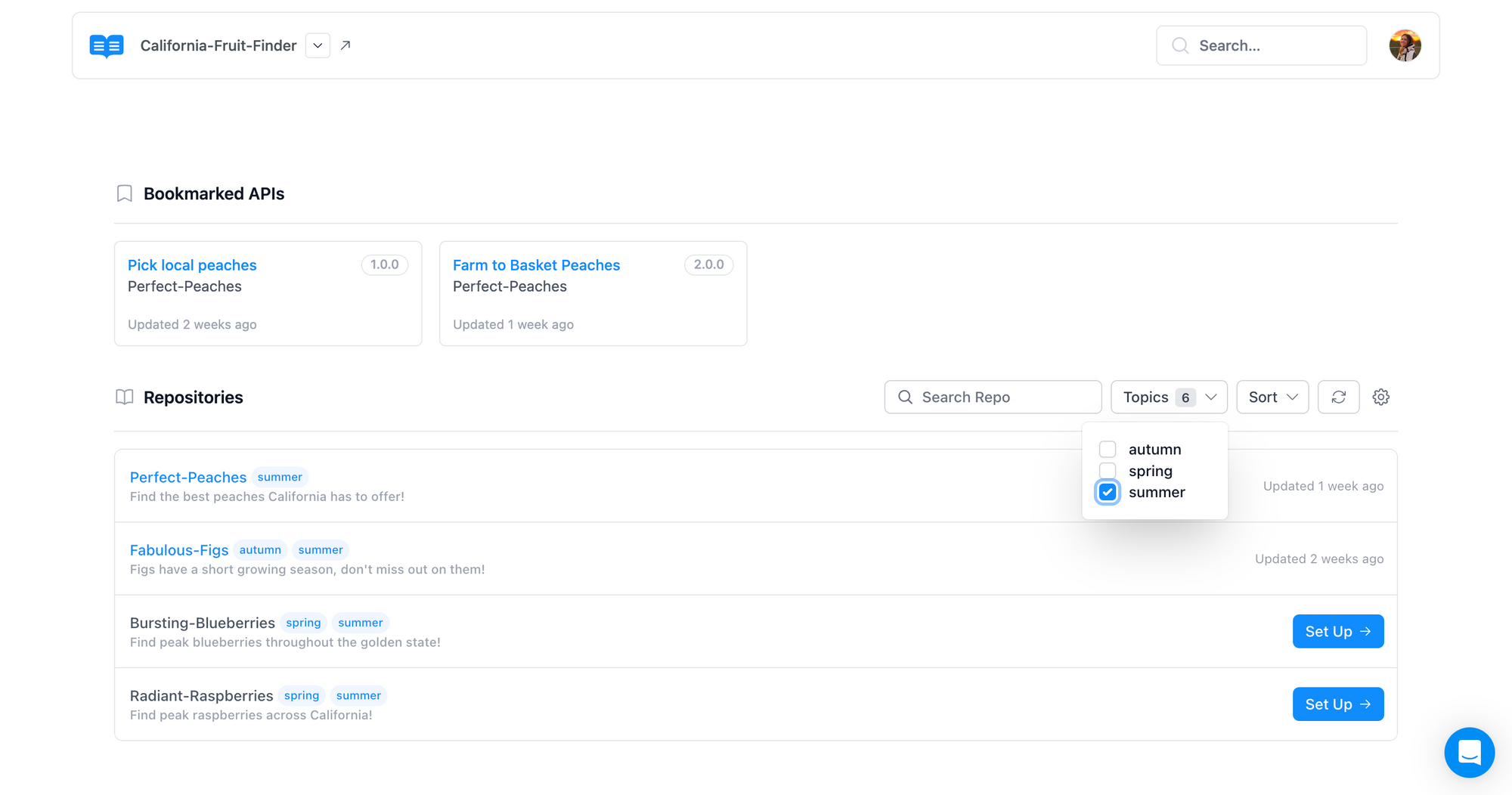
Now, teams have all of the info they need to start using your APIs quickly, and don't have to worry about manually updating files.
Stay secure 🔐
We know how important security is and that you may be wondering exactly how much data you’ll have to share for all of this automatic creation and syncing to function as designed. We’ve worked hard to ensure that Micro requires as little data access as possible, and we’ve designed the access model to be completely open-source. If you want, you can even audit our repository scanning tool and confirm that Micro only reads the files from your repository that it needs (e.g., your OpenAPI file) — nothing more.
What’s the limit? 📈
ReadMe Micro’s pricing is user-based, rather than being based on synced APIs or repositories. We felt that basing pricing on either of those things would work against our goal of making documentation that is scalable and accessible for internal teams. Because of that, pricing is set at $10/month, per user, per organization. If you want to learn more about bulk pricing, you can reach out to our sales team to set up a demo and discuss pricing for your organization. And no matter what, your first 30 days are always free for you and your team to try out Micro.
And that’s not all… 👀
ReadMe Micro is live and available to use for private APIs. Very soon, you’ll be able to use it for public APIs as well — if the repository is public on GitHub or Bitbucket, it will be public in Micro. Of course, that's not all we're working on, so watch this space for future updates 💫
Learn more with a personalized Q&A 📝
As always, we’re happy to answer your questions and listen to your feedback. In fact, we’re hosting two virtual office hours sessions on Thursday, September 21th at 10 AM and 2 PM Pacific. Greg, our founder and CEO, will be there to give you a live walkthrough and answer all of your questions, so you can get a deeper overview and learn more about Micro, learn how to best set up their organizations and sync their repositories, and ask any other questions you have. The sessions will be Zoom calls and capped at 50 attendees each. To learn more and sign up for your session of choice, head here.
Can’t make the sessions but still want to learn more? Reach out to the sales team here and they can get you sorted ✨


